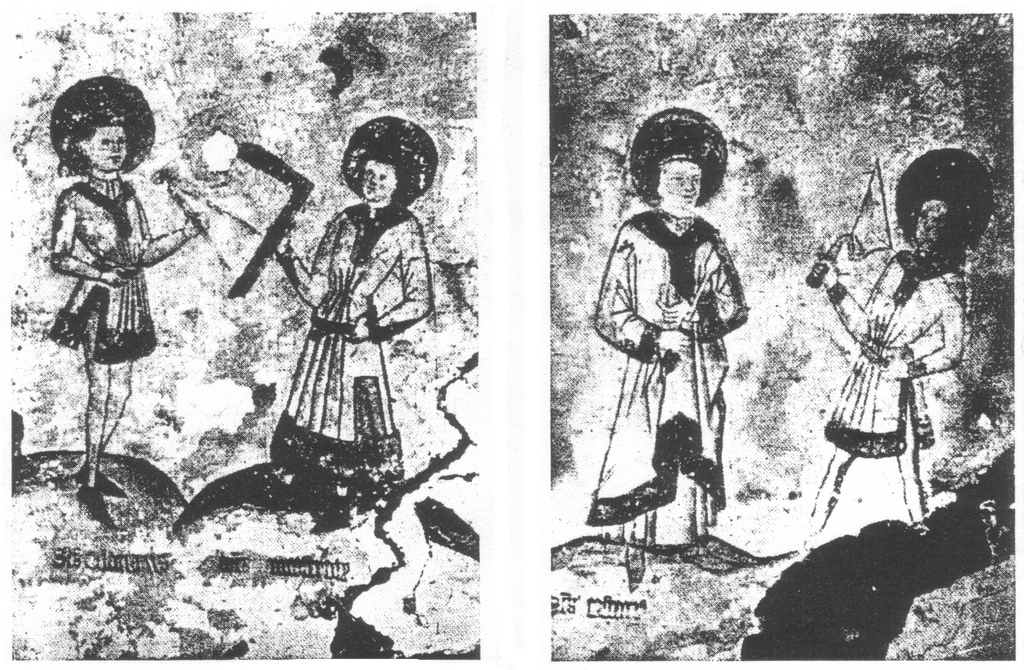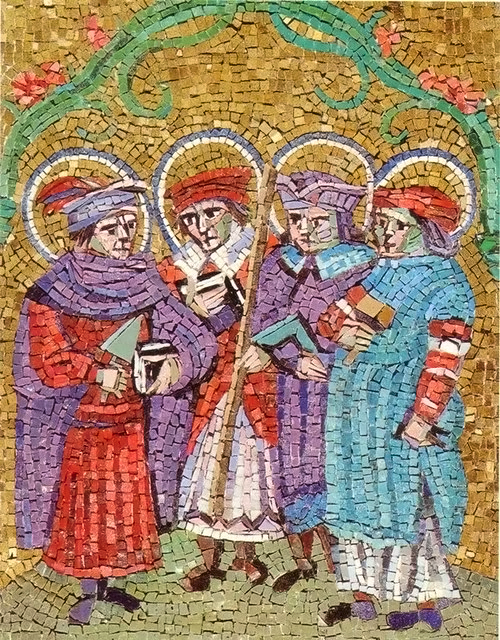Their Legacy in Operative Stone Masonry and Modern Freemasonry

The Quatuor Coronati, or “Four Crowned Martyrs,” hold a significant place in the history of both operative stonemasonry and modern Freemasonry. Their story bridges the ancient world and the Masonic traditions we observe today, representing the enduring values of craftsmanship, moral integrity, and brotherhood.
The Legend of the Quatuor Coronati
The legend of the Quatuor Coronati originates from the early 4th century during the reign of Roman Emperor Diocletian. According to tradition, four stonecutters—Claudius, Nicostratus, Simplicius, and Castorius—were renowned for their skill in crafting beautiful stonework. When ordered by Diocletian to carve a statue of the god Aesculapius, they refused, citing their Christian faith, which forbade idolatry. As a result, they were martyred for their defiance and unwavering commitment to their beliefs.
Their story is intertwined with that of another group of Christian martyrs—Severus, Severian, Carpophorus, and Victorinus—who were also executed under Diocletian. These two groups of martyrs became known collectively as the Quatuor Coronati, or “Four Crowned Ones,” though they represent nine individuals. They were venerated by the Christian Church for their faith and sacrifice, and their legend spread throughout Europe, particularly among stoneworkers, who adopted them as their patron saints.
The Quatuor Coronati and Operative Stone Masonry
The Quatuor Coronati became important symbols for operative stonemasons during the medieval period, particularly in Gothic Europe, where stoneworkers formed guilds to protect their craft and uphold high standards of craftsmanship. These guilds often looked to the Quatuor Coronati as spiritual guides, viewing their refusal to compromise their values as emblematic of the integrity expected of a master craftsman.
The martyrs’ connection to stonework made them ideal patrons for these guilds, as they symbolized the fusion of spiritual conviction and artistic excellence. Operative masons held the virtues of honesty, precision, and dedication to their craft in high regard, values that the Quatuor Coronati personified. Their example was a reminder that masonry was not just about shaping stone, but about upholding moral principles while doing so.
The Influence on Modern Freemasonry
The legend of the Quatuor Coronati transitioned from the realm of operative stone masonry into speculative Freemasonry, where their story has been preserved and honored. Freemasonry, as a system of moral and ethical teachings, looks to the Four Crowned Martyrs as exemplars of courage, integrity, and devotion to principles greater than oneself.
In modern Freemasonry, the virtues embodied by the Quatuor Coronati are echoed in the teachings of the Craft. Just as the martyrs refused to compromise their faith, Freemasons are encouraged to stand firm in their commitment to moral and ethical truths. The concept of being a “stone” in the larger spiritual edifice of society reflects the lessons learned from the martyrs: each individual, through the exercise of virtue and integrity, contributes to the betterment of humanity.
Quatuor Coronati Lodge No. 2076
The significance of the Quatuor Coronati legend is further commemorated by the founding of Quatuor Coronati Lodge No. 2076 in 1884, a prestigious Masonic research lodge based in London. This lodge is dedicated to the scholarly study of Freemasonry’s history, symbolism, and evolution. It is regarded as the premier Masonic research institution in the world, conducting deep investigations into the origins and meanings of Masonic practices.
Quatuor Coronati Lodge No. 2076 has significantly impacted how we understand the historical connections between operative stone masonry and speculative Freemasonry. Through the publications of its members and lectures, the lodge has contributed to the academic study of Freemasonry, helping to dispel myths, confirm historical facts, and enrich our understanding of Masonic ritual and symbolism.
The Feast Day of the Quatuor Coronati
The Feast Day of the Quatuor Coronati is celebrated on November 8th, and it remains an important day for operative masons and Freemasons alike. The day is marked by commemorations and reflections on the lives of the martyrs, particularly their courage in the face of oppression and their dedication to their craft.
In some Masonic lodges, the Feast Day is observed with formal dinners, lectures, and gatherings that reflect on the moral and philosophical teachings that the Quatuor Coronati represent. It’s a time for Masons to rededicate themselves to the principles of truth, honesty, and virtue, inspired by the legacy of these ancient martyrs.
Conclusion
The Quatuor Coronati represent a vital link between the ancient world of operative stone masonry and the modern speculative Freemasonry we practice today. Their story of moral courage, dedication to craftsmanship, and commitment to principles greater than themselves resonates deeply with Masonic teachings. Whether through the historical influence they had on operative masons or their ongoing legacy in modern Masonic lodges, the Four Crowned Martyrs continue to inspire and guide those who seek to build a better world through virtue and integrity.



